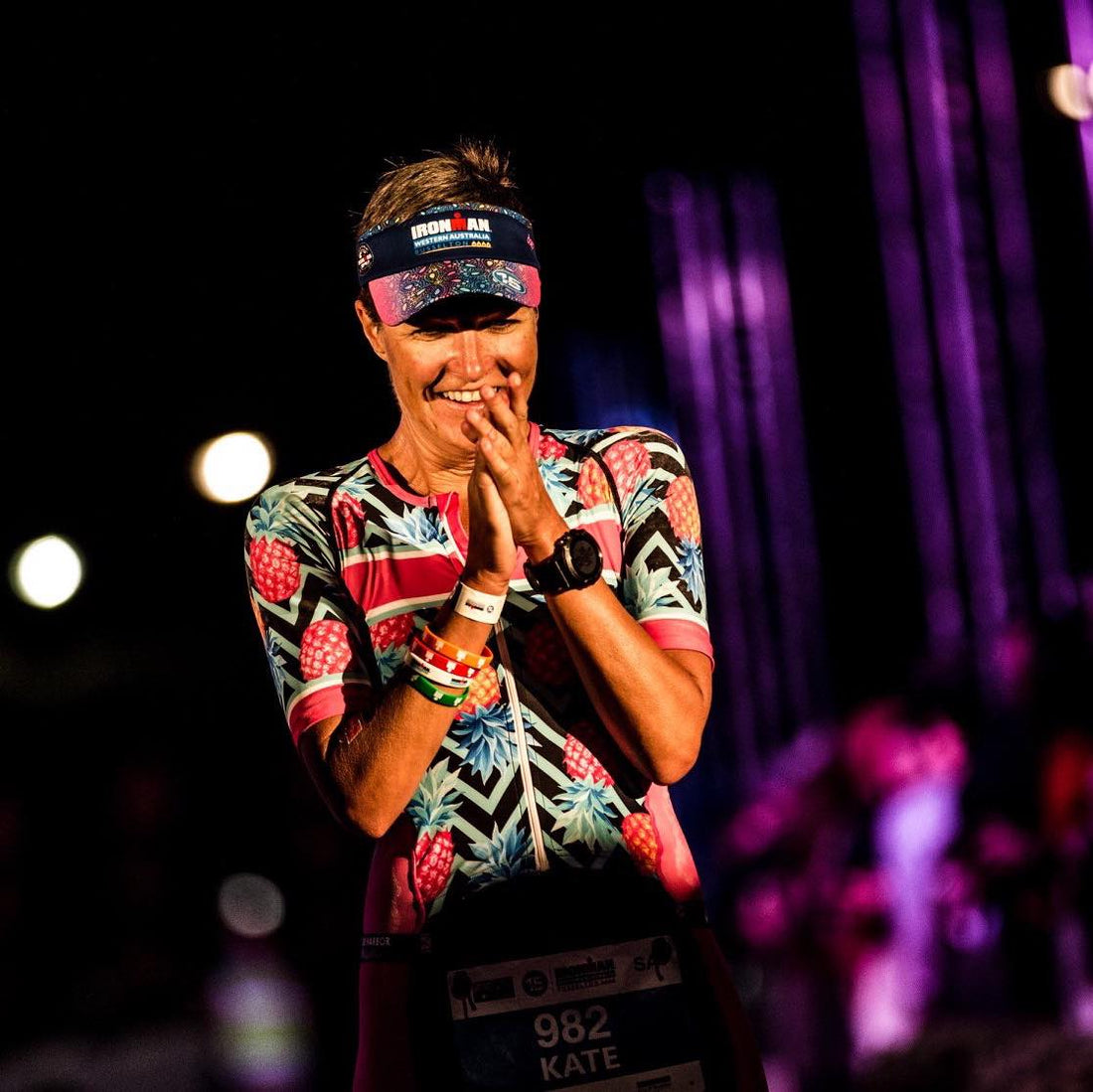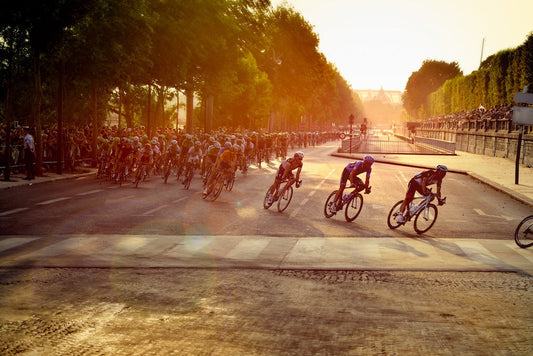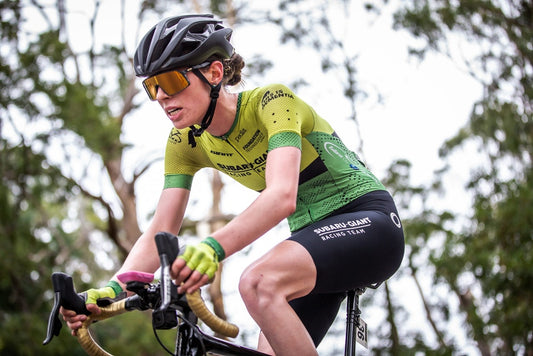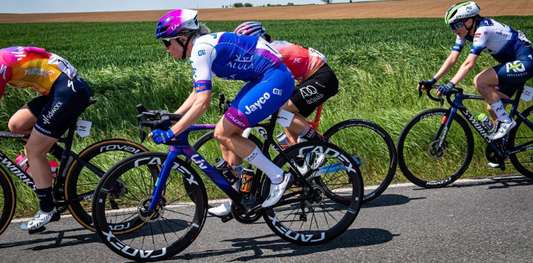How did you get into IRONMAN events and ultra marathons?
I smoked heavily for over 20 years and finally managed to quit 12 years ago. I started running to get fit and did the Melbourne Marathon in 2010. In 2012 my brother suggested that we (my boyfriend and I) all do the Cairns Ironman 70.3 together. I said, “Sure, what’s an Ironman? How hard can it be?” Well, pretty hard! We trained for nearly a year for the race. I absolutely loved it and the next day my boyfriend and I signed up for the full Ironman in Port Macquarie. We went onto racing 6 more 140.6 and 10 x 70.3 races together around Australia, over the next 7 years.
In 2018 I went onto Lite n Easy and lost 11 kilos and I was even on the Lite n Easy ads around Australia in 2019! My training and racing improved dramatically.
After the 2019 Pt Macquarie Ironman, I found I had lost my love for the sport but my love for running was still strong, so when we got home from the race, I signed up for the Yurrebilla ultra trail marathon. The race is 56kms of steep, rocky trails through the Adelaide hills. Again, I had no idea what I was in for, but if training for and finishing 7 Ironman races has taught me anything, it’s that I am made of tough stuff. I finished this ultra and then decided I was ready to tackle Ironman again, so now have my sights set on Ironman Western Australia in December 2020, the day after my 50th birthday.

You are a 7 time IRONMAN finisher, 10 time half IRONMAN finisher, and an ultra marathon runner. How do you have the time to work as a paediatric intensive care registered nurse?
I’m not quite full time, but I do work a lot of hours! I’m a very focused person and also very stubborn as my boyfriend will attest to! When I put my mind to something, I am single minded about achieving this, and I can honestly say this comes from all my training and racing Ironman. I never realised that I had this kind of determination prior to Ironman.
Tell us about an average day for you and your routine?
On a working day I get up at around 4.20am and run for about 8-9kms before I leave for work and do a 7.00am – 7.30pm shift. I am absolutely exhausted by the time I get home as nursing in Intensive Care is a very physically and emotionally demanding job. I have a glass of wine, eat dinner and go to bed as I usually have to get up and do it all again the next day.
On my days off I usually have a sleep in and then get up and study for a few hours as I’m currently studying my Bachelor of Criminology. I then head out into the trails for a long run, or to the outdoor pool at my gym for a swim no matter the weather. If the weather permits, I’ll go for a ride. I actually prefer swimming and running in winter as I always get a lane to myself at the outdoor pool, but I’m not a huge fan of road riding, so I often train indoors. The trails are so pretty in the colder months and I don’t have to worry about snakes!
What are the biggest challenges in trying to juggle both endurance racing/training and work?
I have to really prioritise my time and when I make a decision or commit to training and a race, I stick to it. I have very understanding friends and family, as quite often I’m exhausted after working and training and don’t have the energy to catch up as often as we would like. I plan out my weeks and know what I have to do, including study, work and training. I’m quite regimented about it and I’m lucky to have such supportive, wonderful people around me who know how much I get out of my training and racing. I couldn’t do it without them.
The biggest challenge is time. I’m always tired and feel (like many people) that I race from one thing to another. Getting up at 4.20am most mornings isn’t my favourite thing to do, but I always remind myself of how good I feel when I’m racing and cross that line to the words “Kate Allan, you are an Ironman”. It is indescribable and addictive. There is no better feeling than being really fit.

What advice would you give to someone thinking about doing their first IRONMAN, 70.3 or an ultra marathon?
Sign up and do it! If I can do it anyone can! I’ll never win, in fact I’m often near the back of the pack but that isn’t what it’s about in my mind. Ironman and Ultras have taught me that I can do anything I put my mind to. It has given me so much confidence in my choices and decisions in life, and I am a better person for it. When you push your body and mind to the absolute limit over a 15-hour race, not to mention all the months of training leading up to it, you find that you are capable of more than you ever imagined. It has transferred to other areas in my life – I’m back studying again and have taken steps in my career that I hadn’t thought possible prior to Ironman.
If you want to do it, sign up and commit to it. Prepare to suffer and prepare to sacrifice, but it’s worth it. Set yourself training goals every day over the weeks and months leading to the race and stick to them. Tell people you’re doing it. I find that if I tell friends and family of my plans, then I’m more accountable and have to do it! Thank those around you who support you and understand your complete and utter obsession with Ironman and Ultras, because trust me, it will happen. It’s like a drug. Enjoy the day, smile and thank all the volunteers, be kind, courteous and don’t litter out on the course.
Don’t lose sight of why you’re racing and savour every moment.
If you had to choose, which is your favourite - triathlon racing or ultra marathons and why?
Definitely Ironman, hands down. There is no better feeling than crossing that line with the lights, music pumping and hundreds of people cheering. Running down that finishers chute are without doubt the greatest moments of my life. I will never forget that feeling. It makes the hundreds and hundreds of hours of training and sacrifice worth it.
I absolutely love ultra-trail running too. Funnily enough I love the training as much if not more than the race itself. Running for hours on trails in the hills, seeing no one but birds, kangaroos and koalas is the best way to spend a day, but Ironman will always be my true love.

How much of an issue is dehydration for you and what are the impacts?
Obviously when you are racing for 15 hours dehydration is a massive concern, especially in some of the places we race like Western Australia where it is hot and dry. I sometimes train for up to 6 hours at a time so I have to think about how I’m going to best hydrate and fuel my body.
How do you manage your hydration and nutrition during training?
If I’m heading out for a session that will be over 2 hours I’ll wear my hydration vest and also pack nutrition bars, peanut butter sandwiches, bananas etc. I always use PREPD, electrolyte powders on longer sessions and then PREPD recovery powder when I get home.
In the world of ultra marathon racing and triathlons, what is on your bucket list?
I would love to get to the Ironman World Championships in Kona, Hawaii one day.
I would also like to finish the Ultra Five in South Australia. This is five ultra trail marathons over the year. Not many people are able to finish the whole series as it’s incredibly taxing on the body. I had signed up for the series this year, but Covid had other plans. Maybe 2021?





